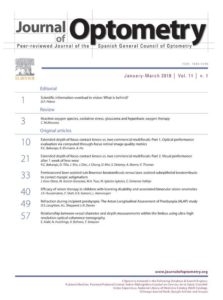Purpose: Sports-related concussion has received increasing attention as a result of neurologic sequelae seen among athletes, highlighting the need for a validated, rapid screening tool. The King–Devick (K–D) test requires vision, eye movements, language function and attention in order to perform and has been proposed as a promising tool for assessment of concussion. We investigated the K–D test as a sideline screening tool in a collegiate cohort to determine the effect of concussion.
Methods: Athletes (n = 127, mean age 19.6 ± 1.2 years) from the Wheaton College football and men’s and women’s basketball teams underwent baseline K–D testing at pre-season physicals for the 2012–2013 season. K–D testing was administered immediately on the sidelines for football players with suspected head injury during regular games and changes compared to baseline were determined. Post-season testing was also performed to compare non-concussed athletes’ test performance.
Results: Concussed athletes (n = 11) displayed sideline K–D scores that were significantly higher (worse) than baseline (36.5 ± 5.6 s vs. 31.3 ± 4.5 s, p < 0.005, Wilcoxon signed-rank test). Post-season testing demonstrated improvement of scores and was consistent with known learning effects (35.1 ± 5.2 s vs. 34.4 ± 5.0 s, p < 0.05, Wilcoxon signed-rank test). Test-retest reliability was analyzed between baseline and post-season administrations of the K–D test resulting in high levels of test-retest reliability (intraclass correlation coefficient (ICC) = 0.95 [95% Confidence Interval 0.85–1.05]).
Conclusions: The data show worsening of K–D test scores following concussion further supporting utility of the K–D test as an objective, reliable and effective sideline visual screening tool to help identify athletes with concussion.
Summary Points:
- The K-D Test was assessed in collegiate basketball (female and male) and football.
- 11 out of 127 athletes had a concussion and significantly worse scores on K-D Test; 2 of the 11 concussed athletes passed the SCAT2 yet scored 4.9 s worse on K-D Test compared to baseline.
- Post-season testing showed high test-retest reliability and improved scores on K-D Test.
- K-D Test scores improved after a 2.5 h workout in non-concussed male and female basketball players.
- There was no worsening of K-D scores following physical fatigue in the absence of concussion.
- The K-D Test is a reliable, objective concussion screening tool that is not affected by physical fatigue or exercise.

